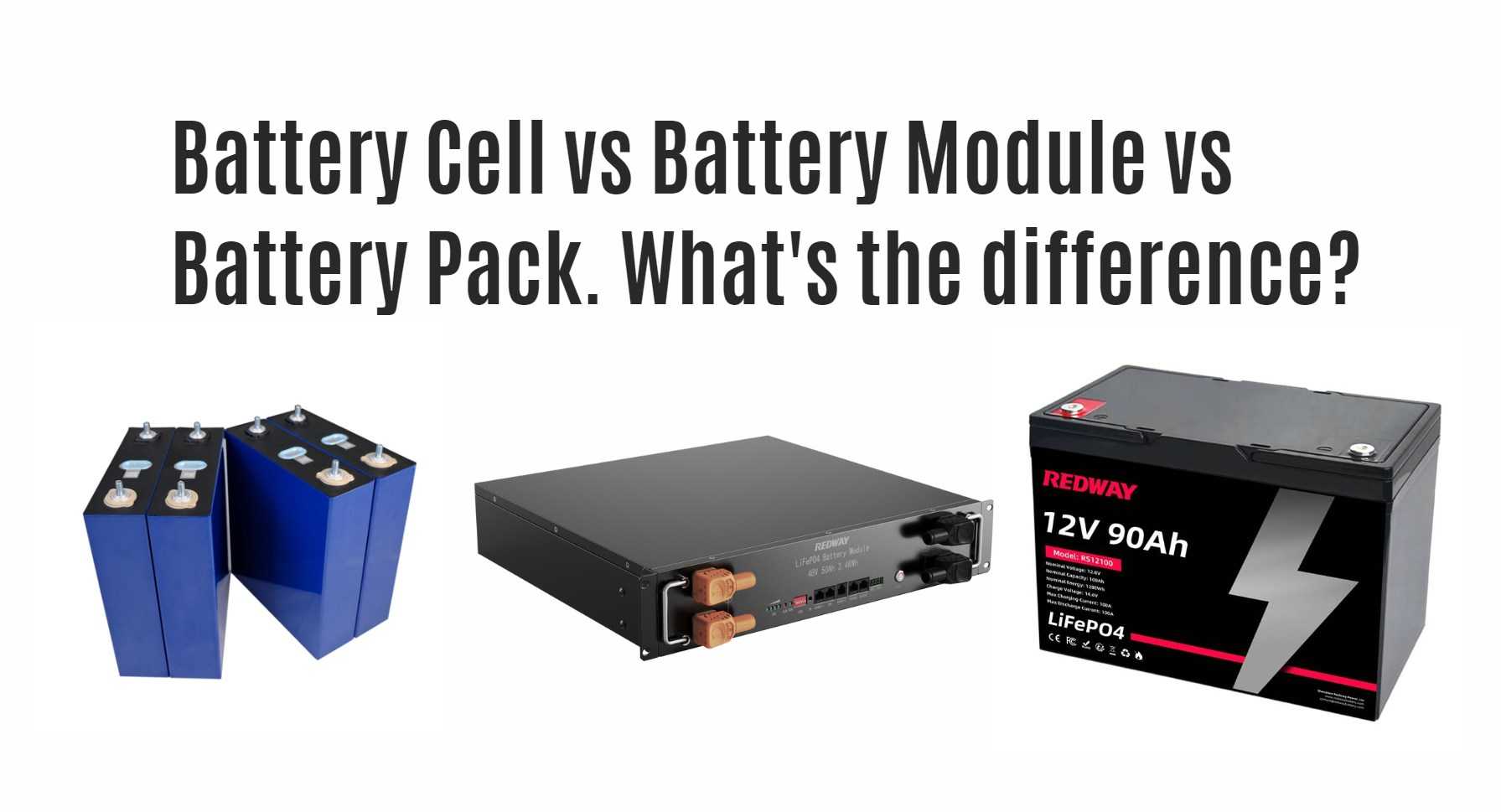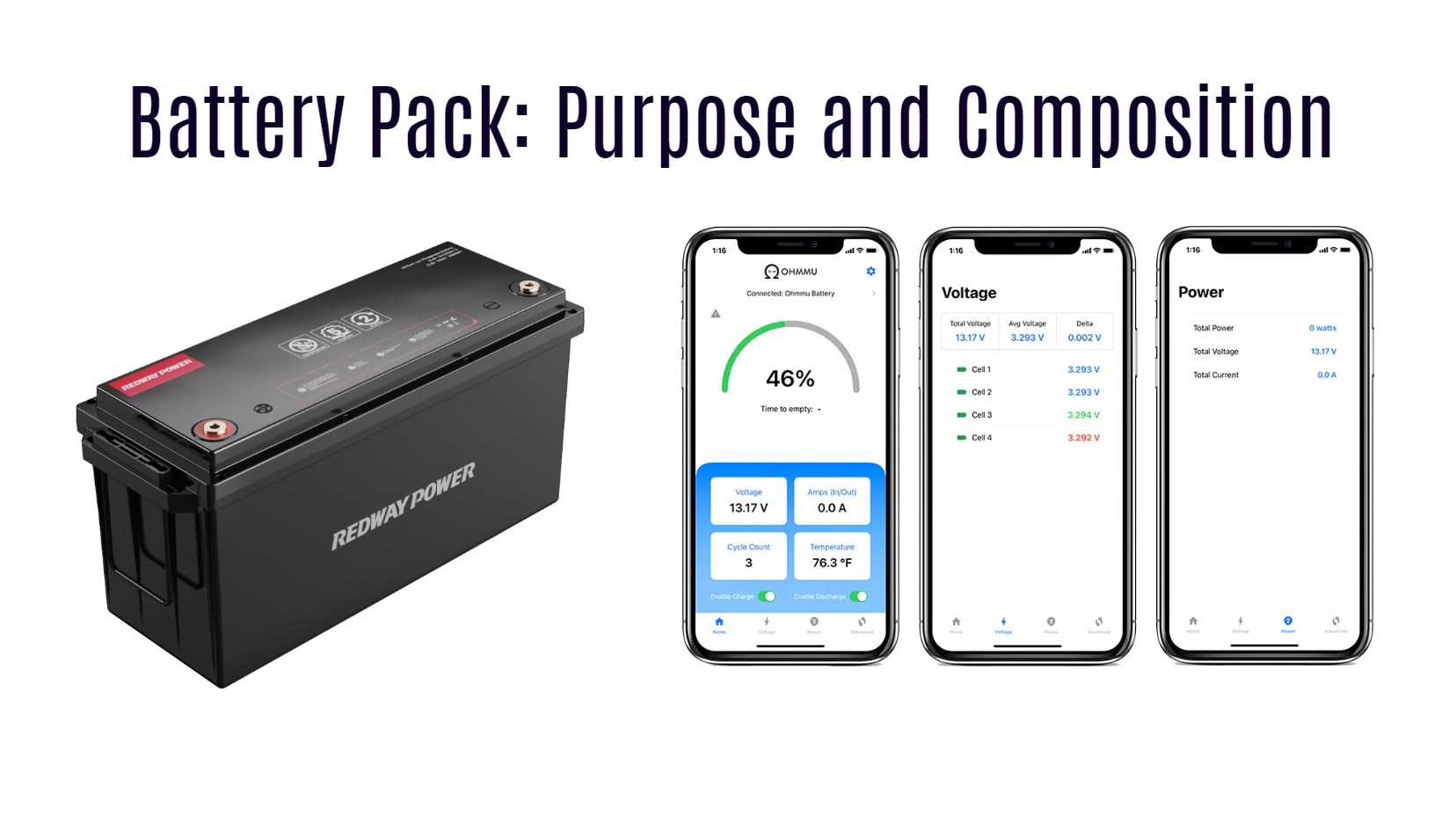Explore the fascinating world of batteries with us! From powering smartphones to electric vehicles, they’re a vital part of our daily lives. In this blog post, we’ll uncover the secrets behind battery technology, diving into the differences between cells, modules, and packs. Whether you’re a tech enthusiast or just curious, join us on this electrifying journey to understand how batteries work!
Battery Cell: Definition and Components
Uncover the basics of battery cells with these key points:
- Foundation of Energy Storage: Battery cells are the essential units storing and releasing electrical energy, acting as the building blocks of any battery system.
- Three Core Components: A battery cell comprises an anode (negative electrode), cathode (positive electrode), and electrolyte solution, working harmoniously to enable electron flow during charging and discharging cycles.
- Key Functions: The anode, often made from materials like graphite or lithium metal oxide, serves as the source for electron discharge during use, while the cathode receives electrons during recharge cycles.
- Critical Role of Electrolyte: The electrolyte solution acts as a conductive medium, allowing ions to move between electrodes while preventing direct contact.
- Additional Components: Batteries may include separators for physical separation between electrodes and current collectors to enhance efficient electron flow within the cell.
- Unique Mini Power Plants: Each battery cell is like a mini power plant, featuring its chemistry and design tailored for specific applications.
Stay tuned as we explore how these individual cells combine to create larger functional units known as battery modules and packs!
Battery Module: Explanation and Function
Unveil the significance of battery modules with these key insights:
- Bridge Between Cells and Packs: Battery modules serve as crucial components, acting as a connection point between individual battery cells and the overall battery pack.
- Cell Arrangement: Typically comprised of interconnected battery cells, arranged in series or parallel configurations, modules work collectively to provide the desired voltage and capacity.
- Safety and Performance Management: The primary role of a battery module is to manage electrical connections between cells, ensuring safe operation by monitoring parameters like temperature and voltage. This prevents potential hazards such as overcharging and overheating.
- Efficient Power Distribution: Modules facilitate optimal power distribution within the system, balancing the charge across cells to maximize performance and extend their lifespan.
- Communication Hub: Equipped with sensors and communication protocols, a battery module communicates with external systems, providing essential data on cell health, state-of-charge, and other relevant information for monitoring and control.
- Unlocking True Potential: While a single cell holds power individually, the integration into a battery module unleashes its true potential. Multiple cells working together, under careful management, ensure safety, performance optimization, and versatility in applications like electric vehicles and renewable energy storage solutions.
Battery Pack: Purpose and Composition
Explore the significance of battery packs with these key points:
- Essential Power Source: Battery packs are crucial for powering electronic devices efficiently, acting as a reservoir for stored energy and distributing it as needed.
- Cell Organization: Comprising multiple battery cells in series or parallel configurations, a battery pack ensures a steady and prolonged supply of electricity to the device it powers.
- Protective Components: Beyond individual cells, a battery pack includes protective circuitry, connectors, and thermal management systems. These elements work together to optimize performance and prevent potential hazards like overcharging or overheating.
- Efficiency and Reliability: The design and construction of a battery pack play a vital role in determining its efficiency and reliability. Factors such as cell arrangement, packaging materials, cooling mechanisms, and safety features contribute to the overall effectiveness and lifespan of the pack.
- Energy Storage and Distribution: Acting as both an energy storage unit and distributor, a well-engineered battery pack ensures reliable power delivery to electronic devices. Its purposeful design prioritizes safety measures for optimal performance throughout its lifespan.
Key Differences between Battery Cell, Module, and Pack
Unlock the distinctions between battery cell, module, and pack with these key points:
- Battery Cell: The fundamental building block, a cell comprises an anode, cathode, and electrolyte, working together to store and release energy through chemical reactions.
- Battery Module: A grouping of multiple interconnected cells in series or parallel configurations, a module aims to increase voltage or capacity by combining individual cells.
- Battery Pack: Incorporating modules and additional components like circuits, sensors, cooling systems, and packaging materials, a battery pack’s primary role is to provide power for specific applications such as electric vehicles (EVs) or renewable energy storage systems.

In essence:
- Cell: The basic energy storage unit.
- Module: Combines cells to enhance voltage or capacity.
- Pack: Integrates modules with additional features for diverse applications.
Together, these components form a comprehensive system delivering reliable power sources for various industry needs!
Applications of Different Types of Batteries
Explore the diverse applications of battery components across industries with these key insights:
- Battery Cells: Found in portable electronics like smartphones, laptops, and wearables, battery cells are also integral to electric vehicles (EVs), providing the necessary energy for smooth operation.
- Battery Modules: By combining multiple cells into a single unit, battery modules are commonly used in hybrid and electric vehicles, playing a pivotal role in propelling these vehicles on the road.
- Battery Packs: As complete packages, battery packs bring together multiple modules or cells, providing significant energy storage capabilities. Widely used in larger-scale applications such as grid-level energy storage systems and renewable energy installations, they also serve as vital power sources for backup generators during emergencies.
Innovations in battery technology continue to expand their applications, from powering consumer electronics to transforming transportation and supporting sustainable energy solutions. As we move towards a future prioritizing clean energy, batteries play a critical role, with ongoing research focusing on improving performance and environmental sustainability through efficient recycling methods.
The combination of battery cells, modules, and packs is at the forefront of an electrifying revolution, bringing us closer to a world powered by clean energy without compromising convenience, functionality, or performance. Embrace this transformation!





